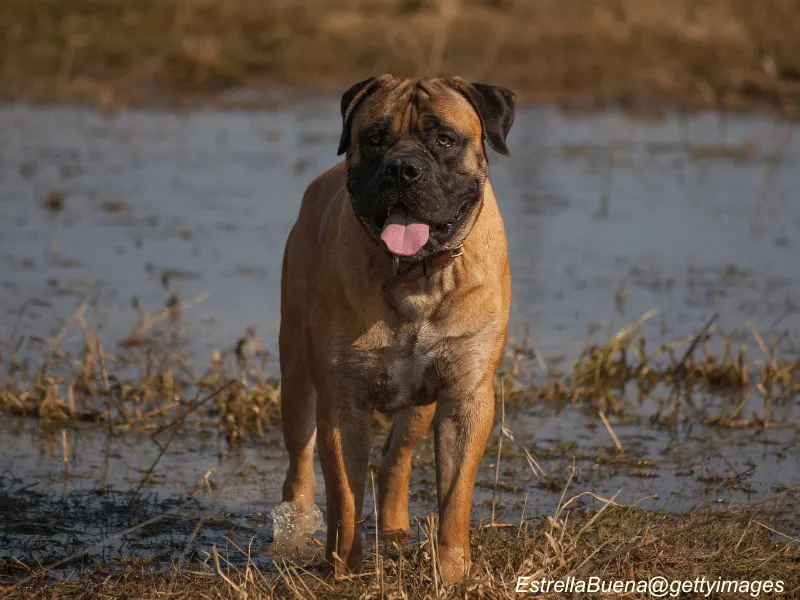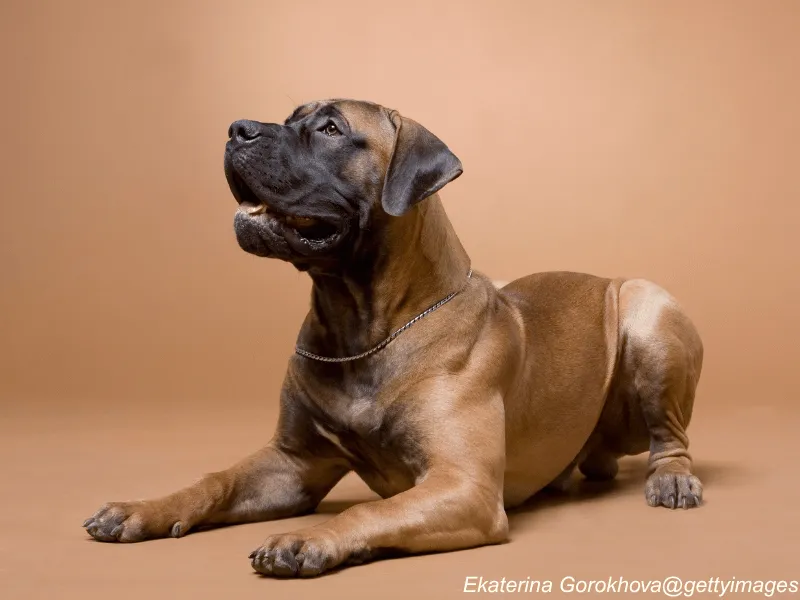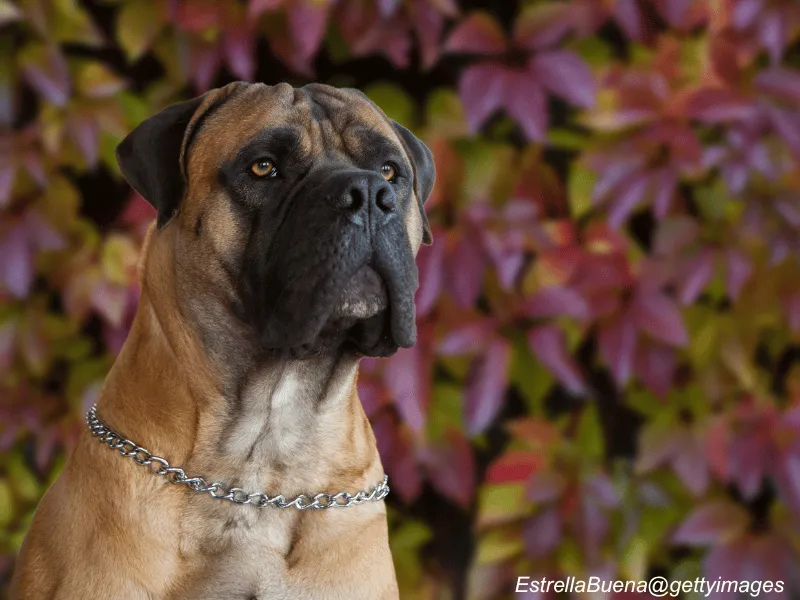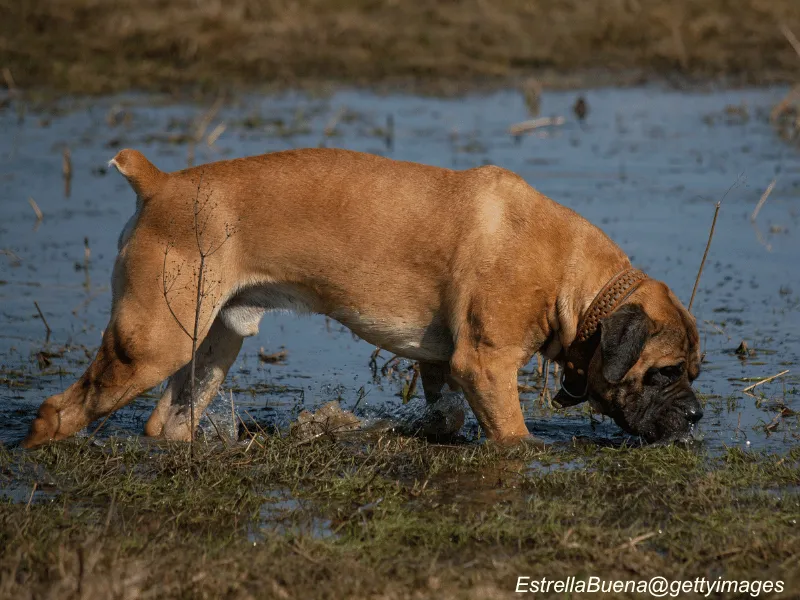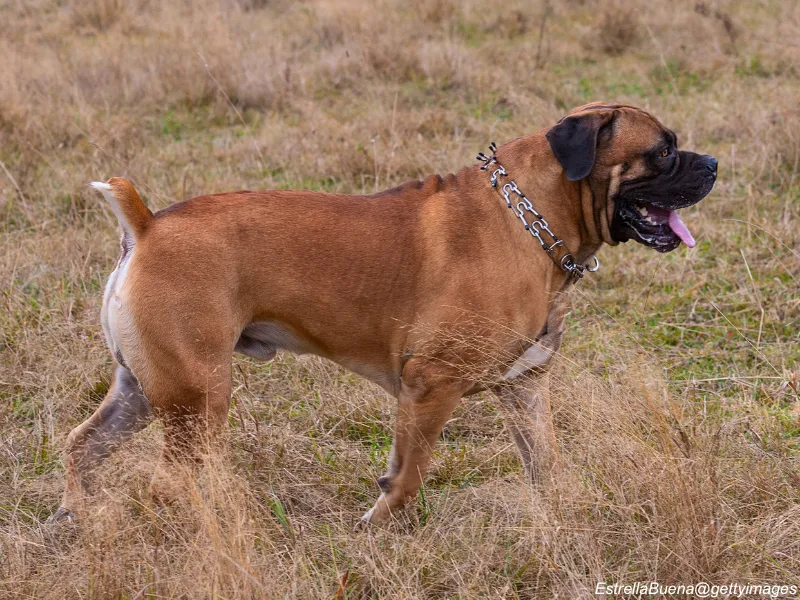Boerboel
AKC Working Group
Origin & History
The Boerboel (pronounced "boor-bull") originated in South Africa in the 17th century, developed by Dutch settlers to protect farms and homesteads. Bred from various European mastiff-type dogs brought by settlers and possibly crossed with native African dogs, they were prized for their strength, courage, and loyalty.
The name "Boerboel" comes from the Afrikaans/Dutch words "boer" (farmer) and "boel" (dog). These dogs served as all-around farm guardians, protecting livestock from predators and families from intruders. The breed nearly went extinct in the early 20th century but was revived in the 1980s by dedicated breeders.
Today, while still used as working dogs in South Africa, Boerboels are increasingly popular worldwide as family guardians known for their imposing presence and devotion to their owners.
Stats:
- Height: 22-27 inches (male), 22-25 inches (female)
- Weight: 150-200 pounds
- Coat: Short, dense, and smooth
- Colors: Fawn, red, brown, brindle, or piebald
- Lifespan: 9-11 years
| Traits: | 1 | 2 | 3 | 4 | 5 |
|---|---|---|---|---|---|
| Energy: Moderate energy; needs regular exercise but not hyperactive | ✓ | ||||
| Easy To Train: Intelligent but strong-willed; needs experienced handler | ✓ | ||||
| Grooming: Low maintenance; occasional brushing | ✓ | ||||
| Family Dog: Excellent with family when properly trained; protective | ✓ | ||||
| Watchdog: Exceptional natural guardian; highly protective | ✓ | ||||
| Beginner Friendly: No! Dominant and strong-willed | ✓ | ||||
| Prey Drive: Moderate/High; protective instincts outweigh prey drive | ✓ | ||||
| Barking: Moderate; will alert to potential threats | ✓ | ||||
| Good with other dogs: Territorial; needs early socialization | ✓ |
Health Concerns:
- Hip Dysplasia: Common in large breeds
- Elbow Dysplasia: Joint development abnormality
- Bloat (GDV): Life-threatening stomach condition
- Heart Conditions: Including cardiomyopathy
- Ectropion/Ectropion: Eyelid abnormalities
- Vaginal Hyperplasia: (In females)
The Boerboel is not yet part of the Canine Health Information Center (CHIC). Please see parent breed clubs for health testing information.
Glossary of general canine health conditions.
